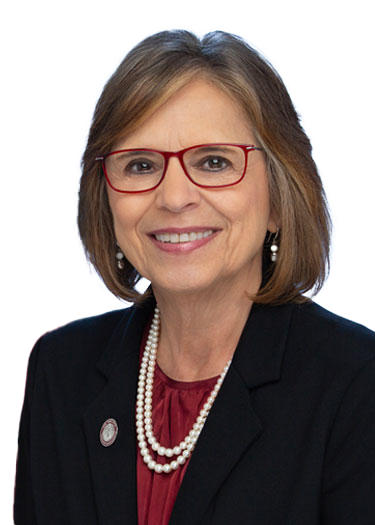Assembly Passes Second Wave of Child Care Legislation
The New York State Assembly today passed the second wave of legislation aimed at making quality child care more accessible and affordable. The package of bills reflects the recommendations of the Child Care Workgroup and demonstrates the Assembly Majority’s continued commitment to put New York families first.
“The measures we passed this week make New York's families a priority and strengthen our child care system,” said Assembly Speaker Carl Heastie. “Access to quality child care not only benefits the child, but gives working parents the opportunity to provide for their families without having to worry that the development and care of their children is being compromised. I commend the Child Care Workgroup for their dedication to finding solutions to the struggles many New York families face and I look forward to seeing these bills become reality.”
The Assembly’s legislative package includes a measure that would limit the co-pay payment for child care subsidies to 20 percent of the household income above the poverty level. Currently, families receiving child care subsidies are subject to a co-pay payment determined by the local social services district that can be as high as 35 percent of household income above the federal poverty level, making it even more difficult for working families to afford quality child care. (A.6174, Russell). Common child care challenges that families face are addressed in the legislation with measures that would:
- require online listing and map of publicly funded or registered afterschool and school age child care programs (A.1869, Mayer);
- direct local districts to utilize the simplified application for persons applying only for child care assistance (A.4469, Barrett); and
- allow providers the ability to post their completed training and credentialing achievements on the New York State Office of Children and Family Services website, which will enhance the current database, helping to bolster the credibility of providers and aid parents in their search for quality child care. (A.1864, Mayer).
Assemblymember Addie Russell said, “Many families require both parents to work in order to make ends meet, making child care a necessity. Unfortunately, the exorbitant cost of child care means many families will struggle under the financial burden. By making necessary changes to the state’s child care subsidy program and placing limits on out-of-pocket expenses, we are able to help struggling families by providing affordable and stable access to quality child care.”
Assemblymember Shelley Mayer said, “Quality early learning plays a critical role in child development. Without it, we put our working families, economic development and future generations at risk. Increased access to affordable quality child care will lessen the burden on working families and provide long term benefits for the entire community.”
Assemblymember Didi Barrett said, “The high cost of child care has proven to be a heavy burden on families. To make matters worse, the process of applying for financial help can be daunting with long complicated applications. We can support access to quality, affordable child care by simplifying the process for families to apply for relief without requiring them to take time off of work or to drive far away from home to do so.”
Passed legislation would require that local social services districts make payments to providers for at least 12 absences in a six month period. Current law does not require counties to pay for any of the absences which create fiscal uncertainty for many providers, leading to difficulty with staff retention and optimal quality care (A.6568, Lupardo). Further protections for child care providers would reduce financial shortfalls by aligning reimbursement rates with current licensing standards for children up to two years of age, ensuring that home based providers receive an adequate subsidy to compensate for the level of care that is being provided (A. 7191, Simotas).
Assemblymember Donna Lupardo said, “To provide quality child care for hard working families, we need to ensure child care providers are receiving the support they need. By passing legislation that supports child care providers and reduces financial hardships, we are creating a solid foundation for quality providers.”
Assemblymember Aravella Simotas said, “No parent should be forced to choose between working and knowing their children are being well-cared for. These bills will help make affordable, accessible child care a reality for New York families.”
The Assembly also approved legislation called for by the Child Care Work Group that would establish the Early Learning Investment Commission (ELIC) and the Child Care Regulatory Review Task Force.
The ELIC would help secure support for public and private investment in early learning for children up to the age of five. It would be comprised of the commissioners of the Office of Children and Family Services, State Education Department, Office of Temporary and Disability Assistance and Empire State Development Corporation as well as representatives of the business community appointed by the Governor, the Assembly Speaker and the Temporary President of the Senate (A.6629, Lupardo). The Child Care Regulatory Review Task Force would review administrative and regulatory requirements of all state agencies governing child care programs with the goal of eliminating duplicative processes and streamlining requirements (A.7135, Gunther).
Assemblymember Aileen Gunther said, “New York families rely on child care, and it’s vital that child care programs offer top-quality care for our children. This legislation not only increases access to quality, affordable child care, it also makes the agencies that oversee child care programs more efficient to ensure programs offer the best care possible.”
The work group is comprised of Assemblymembers Catherine Nolan, Addie Russell, Donna Lupardo, Andrew Hevesi, Michele Titus, Ellen Jaffee, Aileen Gunther, Aravella Simotas, and Latrice Walker.
